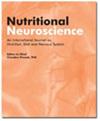Incidence and pattern of neurological emergencies in Ramadan.
IF 3.6
4区 医学
Q2 NEUROSCIENCES
引用次数: 0
Abstract
BACKGROUND The impact of Ramadan fasting on various neurological emergencies remains relatively unexplored. This study aimed to clarify the incidence and pattern of the different neurological emergencies in Ramadan compared to Shaaban. METHODS In this cross-sectional study, all adult patients attending the emergency room at two Egyptian centers with neurological emergencies during Shaaban and Ramadan were evaluated. Clinical, laboratory, and radiological assessments were made on an individual basis upon which the diagnosis of neurological disorder was made. IBM SPSS Version 25 was used to analyze the data. RESULTS Seventy-twenty patients were included, 382 during Shaaban and 338 during Ramadan. Among causes of delirium, the frequency of dehydration was significantly higher, and the frequency of illicit drug abuse was significantly lower during Ramadan compared to Shaaban (P = 0.004, 0.030, respectively). The incidence of ICH was significantly reduced during Ramadan compared to Shaaban (10.8% vs 19.7%, P = 0.031). The incidence of cardioembolic strokes significantly increased during Ramadan than Shaaban (40.5% vs 26.4%, P = 0.014), whereas the incidence of small vessel disease (SVD) significantly decreased during Ramadan than Shaaban (21.6% vs. 42.1%, P < 0.001). The incidence of a single seizure was significantly higher in Ramadan than in Shaaban (69.4% vs. 34.6%, P = 0.007). The incidence of functional neurological disorders was significantly reduced in Ramadan than in Shaaban (P < 0.001). CONCLUSION The incidence of delirium caused by illicit drug abuse, ICH, SVD, and functional neurological disorders declined during Ramadan, while the incidence of delirium triggered by dehydration, cardioembolic strokes, and a single seizure increased during Ramadan.斋月期间神经急症的发病率和模式。
背景斋月禁食对各种神经系统急症的影响仍未得到深入探讨。本研究旨在阐明与斋月相比,斋月期间不同神经系统急症的发病率和模式。方法在这项横断面研究中,对在斋月和斋月期间前往埃及两个中心的急诊室就诊的所有神经系统急症成年患者进行了评估。临床、实验室和放射学评估以个体为基础,并据此做出神经系统疾病的诊断。结果共纳入 72 名患者,其中 382 名在斋月期间,338 名在斋月期间。在导致谵妄的原因中,斋月期间脱水的频率明显高于斋月期间,非法药物滥用的频率明显低于斋月期间(P = 0.004,0.030)。与沙班相比,斋月期间的 ICH 发生率明显降低(10.8% vs 19.7%,P = 0.031)。斋月期间心肌栓塞性脑卒中的发病率明显高于斋月期间(40.5% vs 26.4%,P = 0.014),而斋月期间小血管疾病(SVD)的发病率明显低于斋月期间(21.6% vs 42.1%,P < 0.001)。单次癫痫发作的发生率在斋月明显高于沙班(69.4% 对 34.6%,P = 0.007)。斋月期间,非法药物滥用、ICH、SVD 和功能性神经紊乱导致的谵妄发生率下降,而脱水、心肌栓塞性中风和单次癫痫发作导致的谵妄发生率上升。
本文章由计算机程序翻译,如有差异,请以英文原文为准。
求助全文
约1分钟内获得全文
求助全文
来源期刊

Nutritional Neuroscience
医学-神经科学
CiteScore
8.50
自引率
2.80%
发文量
236
审稿时长
>12 weeks
期刊介绍:
Nutritional Neuroscience is an international, interdisciplinary broad-based, online journal for reporting both basic and clinical research in the field of nutrition that relates to the central and peripheral nervous system. Studies may include the role of different components of normal diet (protein, carbohydrate, fat, moderate use of alcohol, etc.), dietary supplements (minerals, vitamins, hormones, herbs, etc.), and food additives (artificial flavours, colours, sweeteners, etc.) on neurochemistry, neurobiology, and behavioural biology of all vertebrate and invertebrate organisms. Ideally this journal will serve as a forum for neuroscientists, nutritionists, neurologists, psychiatrists, and those interested in preventive medicine.
 求助内容:
求助内容: 应助结果提醒方式:
应助结果提醒方式:


